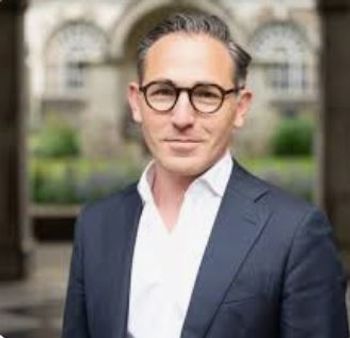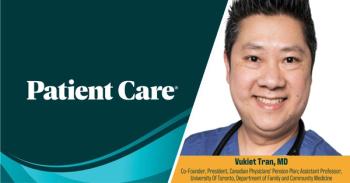
U.S. Surgeon General Embraces Workplace Smoking Ban
WASHINGTON - Calling secondhand tobacco smoke a significant risk to cardiovascular health, the U.S. Surgeon General today praised states and municipalities that have a banned smoking in the workplace, in bars, and in other public places.
WASHINGTON, June 27 - Calling secondhand tobacco smoke a significant risk to cardiovascular health, the U.S. Surgeon General today praised states and municipalities that have a banned smoking in the workplace, in bars, and in other public places.
He did not recommend any federal antismoking laws.
There is no risk-free level of secondhand smoke, said Surgeon General Richard Carmona, M.D., M.P.H., in a report titled The Health Consequences of Involuntary Exposure to Tobacco Smoke. Even brief exposure to tobacco smoke can interfere with the heart and vascular system in ways that increase the risk of a heart attack, said the report.
Providing smokers with a separate, well-ventilated place to smoke within a building or installing an air cleaning system is not enough to protect nonsmokers, the report concluded. Air cleaning systems can capture large airborne particles, but not the tiny particles and gases of secondhand smoke.
And ventilation systems may actually help to spread secondhand smoke throughout a building, the report said.
"Consequently, nonsmokers need protection through the restriction of smoking in public places and workplaces and by a voluntary adherence to policies at home, particularly to eliminate exposures of children," Dr. Carmona said in the report's preface.
Nonsmokers exposed to secondhand smoke at work or home have up to 30% more risk of developing lung cancer or heart disease, the report said.
Last year, an estimated 46,000 adult nonsmokers died from coronary heart disease and 3,000 from lung cancer as a result of second hand smoke, said CDC director Julie Gerberding, M.D., M.P.H., in a foreword to the report.
The report updated a 1986 Surgeon General report, The Health Consequences of Involuntary Smoking, with a meta-analysis of 20 years worth of research on the topic conducted since then.
One piece of positive news is that as awareness about the dangers of secondhand smoke has increased, nonsmokers' exposure to it has decreased. Studies measuring serum levels of cotinine, a metabolite of nicotine, in nonsmokers have documented a 75% reduction from 1988 to 1991, the report said.
Nevertheless, 43% of nonsmokers in the United States still have detectable levels of cotinine, the report said. As of the year 2000, more than 126 million residents of the United States ages three or older still are estimated to be exposed to secondhand smoke. The recent data indicate that median cotinine levels in children are more than twice those of adults, and non-Hispanic blacks have levels that are more than twice as high as those of Mexican Americans and non-Hispanic whites.
Other key highlights of the report include:
- Secondhand smoke contains more than 50 substances known to be toxic or carcinogenic, including formaldehyde, benzene, vinyl chloride, arsenic, ammonia, and hydrogen cyanide.
- Even brief exposure (20 minutes) to secondhand smoke can cause blood platelets to aggregate, damage the lining of blood vessels, decrease coronary flow velocity reserves, and reduce heart rate variability.
- Secondhand smoke contains many chemicals that irritate and damage the lining of the airways. Even brief exposure can cause changes in upper airway function in healthy adults and lead to asthma attacks in children with asthma.
- Secondhand smoke causes premature death and disease in children and in adults who do not smoke.
- Children exposed to secondhand smoke are at an increased risk for sudden infant death syndrome (SIDS), acute respiratory infections, ear problems,
- Many nonsmokers exposed to secondhand smoke in the workplace are employed at restaurants, bars, and casinos. A disproportionate number of these workers are minorities.
- Clinicians should routinely ask patients about their exposure to secondhand smoke, particularly those most susceptible to its effects, including children with asthma and patients with existing lung or heart disease.
The American Heart Association and the American Cancer Society were quick to support the Surgeon General's report.
"The only really effective way to prevent secondhand smoke exposure is to guarantee clean air," the heart association said. "Our legislators and community leaders should rise to the task of protecting all citizens equally, no matter what job they choose or where they choose to be."
"Today's report should end any lingering debate over the importance of enacting comprehensive smoke-free laws," said John R. Seffrin, Ph.D., chief executive officer of the cancer soceity. "The report confirms that the only way to protect people from secondhand smoke is to eliminate their exposure."
"It also reinforces what many of us in public health community have known for some time-that ventilation systems and separate dining sections in restaurants do not adequately protect people's health, and that smoke-free laws do not harm the financial well-being of businesses," Dr. Seffrin said.
Sixteen U.S. states, the District of Columbia, and more than 2,200 communities across the country have banned smoking in public places, covering about 43% of the U.S. population, Dr. Seffrin said.
Newsletter
Enhance your clinical practice with the Patient Care newsletter, offering the latest evidence-based guidelines, diagnostic insights, and treatment strategies for primary care physicians.
































































































































